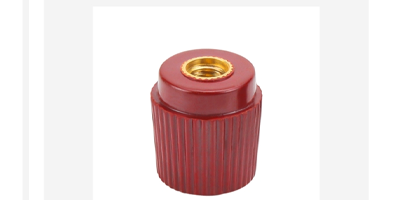When it comes to the insulator family, the low-voltage strut insulator is like a low-key but bright star. Under the vast "night sky" of low-voltage electrical, it quietly exudes a unique light. Compared with many similar products, its advantages are as dazzling as the stars, whether it is the precise control of insulation, or the excellent performance of mechanical properties, or the exquisite trade-off of space and cost, all of which make it a key "role" that cannot be ignored in the field of electrical engineering, and we urgently need to unveil the mystery of its advantages.
I. Optimal Insulation for Low Voltage Systems
Low voltage standoff insulators are specifically engineered to meet the demands of low voltage electrical circuits, typically operating below 1000V. Unlike some general-purpose insulators, they provide a precise and efficient insulation solution without the unnecessary over-engineering. In applications such as household wiring and small appliance circuitry, they maintain a consistently high insulation resistance, effectively preventing electrical leakage and ensuring user safety. Their insulation performance remains stable across a range of environmental conditions, including temperature and humidity variations, which is a significant advantage over certain insulators that may experience performance degradation in extreme environments.
II. Superior Mechanical Properties
Excellent Load-Bearing Capacity
Low voltage standoff insulators possess remarkable mechanical strength, enabling them to support and secure conductors in low voltage electrical installations. They can withstand the weight and tensile forces exerted by the wires, making them ideal for scenarios like power distribution in industrial workshops where they ensure the stability of wire connections, a feat that some smaller or less robust insulators may struggle to achieve.
Enhanced Resistance to Shock and Vibration
These insulators are designed with shock and vibration resistance in mind. In environments with mechanical vibrations, such as near operating motors or in mobile electrical systems, they minimize the risk of connection loosening and damage. In contrast, some structurally fragile insulators may crack or experience connection failures when subjected to frequent vibrations or occasional shocks.
III. Efficient Space Utilization
Compact and Space-Saving Design
Low voltage standoff insulators feature a compact form factor, making them highly suitable for use in space-constrained low voltage electrical equipment and distribution boxes. For example, in the control boxes of smart home systems, their small size allows for easy installation without occupying excessive space, facilitating the miniaturization and integration of the equipment. This is in contrast to larger insulators that can limit the available space for other components.
Flexible Installation Options
Their compact structure affords greater flexibility in installation. They can be installed vertically, horizontally, or in various orientations, allowing electrical engineers to adapt to the specific layout requirements of different electrical systems. This flexibility sets them apart from insulators with more rigid or complex installation needs.
IV. Cost-Effectiveness
Reasonable Price Point
In the insulator market, low voltage standoff insulators are generally priced competitively. Due to their specialization for low voltage applications, the costs of materials and manufacturing processes can be effectively managed. For cost-sensitive low voltage electrical projects, such as large-scale residential electrical wiring, they offer a balance between performance and cost, reducing overall material expenses.
Low Maintenance Requirements
Their durability and stability translate into lower maintenance costs. With fewer instances of replacement or repair needed, they require less investment in terms of labor and materials. Compared to some high-performance insulators with complex maintenance procedures and high costs, low voltage standoff insulators prove to be a more economical choice in the long run.
In conclusion, the low voltage standoff insulator offers a range of advantages over other insulators, making it a preferred choice for many low voltage electrical applications. Its combination of tailored insulation performance, strong mechanical properties, space-efficient design, and cost-effectiveness contribute to the reliability and efficiency of low voltage electrical systems.
